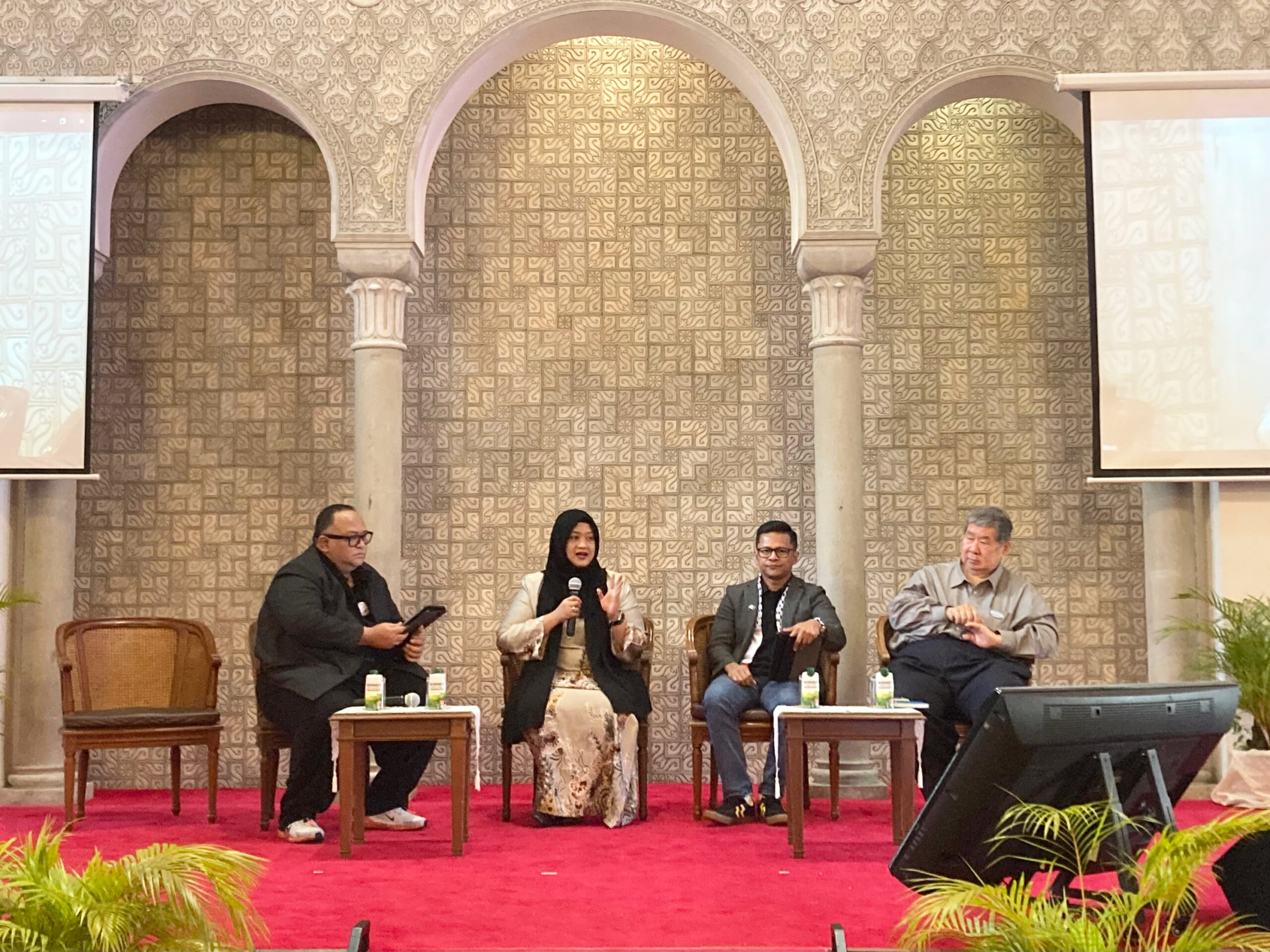By, Irdina Kamal
KUALA LUMPUR, 16 October 2024: Top media industry leaders gathered for an engaging panel discussion addressing the evolving transformations in the media landscape in light of the Communication and Media Centre International Conference (COMETIC) 2024, which was held at the International Institute of Islamic Thought and Civilisation (ISTAC-IIUM).
The one-hour panel session, titled, “Leadership in the Industry: Navigating Challenges and Embracing Change”, was moderated by Dr. Harmi Taazim Mohamad and featured esteemed speakers including the President of the Malaysian Press Institute (MPI), Datuk Yong Soo Heong; CEO of Media Prima Audio, Nazri Noran, and the CEO of the Communications and Multimedia Content Forum of Malaysia (CMCF), Mediha Mahmood.
Datuk Yong Soo Heong opened the session with how MPI is underscoring the need for future journalists to adapt to modern day changes and demands of the journalism field, “We want to ensure that those who will be entering the job market in future are newsroom ready.”
“Today, newsroom ready means the ability to handle equipment such as mobile phones which have a variety of functions. You also have to be multi-skilled in the current industry, if you are part of the ‘tak-nak-buat‘ category, employers will probably show you the door,” he said, emphasising the flexibility needed in journalists to take up roles beyond solely writing.
Nazri then highlighted the role of audio content in the media landscape, noting how radio has managed to sustain itself even through media changes. “Radio has a unique ability to connect with listeners on an intimate level, and we are continuously innovating to stay relevant,” he said.
He also acknowledged that today’s competition extends beyond traditional platforms to include social media and streaming services that are reshaping audience engagement. To stay ahead, Nazri stressed the importance of embracing digital transformation, citing innovations like Fly FM’s introduction of an AI-powered radio DJ and Media Prima’s current development of a centralised radio application to enhance streaming capabilities and connect with local audiences in a more personalised manner.
Mediha focused on the responsibility of social media users to uphold ethical standards online, “You can be creative as you like and use technology as much as you want, but there are certain rules the public needs to remember; we do not want you to harm yourselves, other people, and communities.”
“It is not just about worrying whether your licence will be revoked or whether you will get fined, it is also taking into consideration how your content can impact communities,” she mentioned.
She also shared how CMCF is currently working with medical professionals and media practitioners to develop specific guidelines for content involving sensitive topics like suicide. These initiatives aim to ensure proper portrayal and reportage of suicide in various media.
As the discussion concluded, the panelists agreed that despite the industry’s significant challenges, there are various opportunities for growth. Their insights underscored the need for adaptability and responsible leadership as key factors in shaping a promising future for the media industry.***
- President of Maldives receives Honorary Doctorate from IIUM - April 30, 2025
- COMETIC 2024: Media leaders uncover challenges and innovations shaping the industry - October 18, 2024
- IIUM.FM celebrates 15th anniversary with ‘Seloka Raya’ podcast - April 23, 2024
